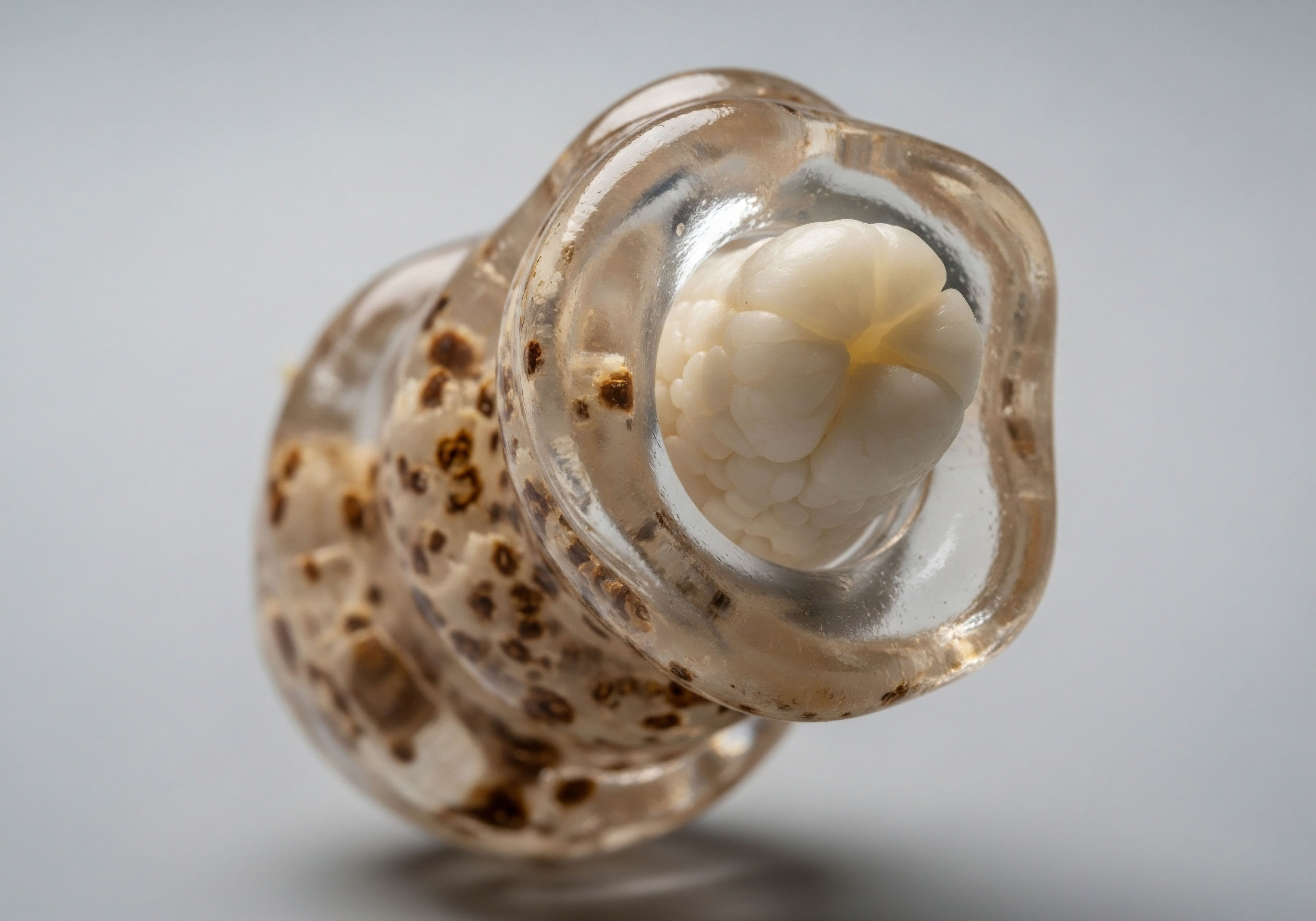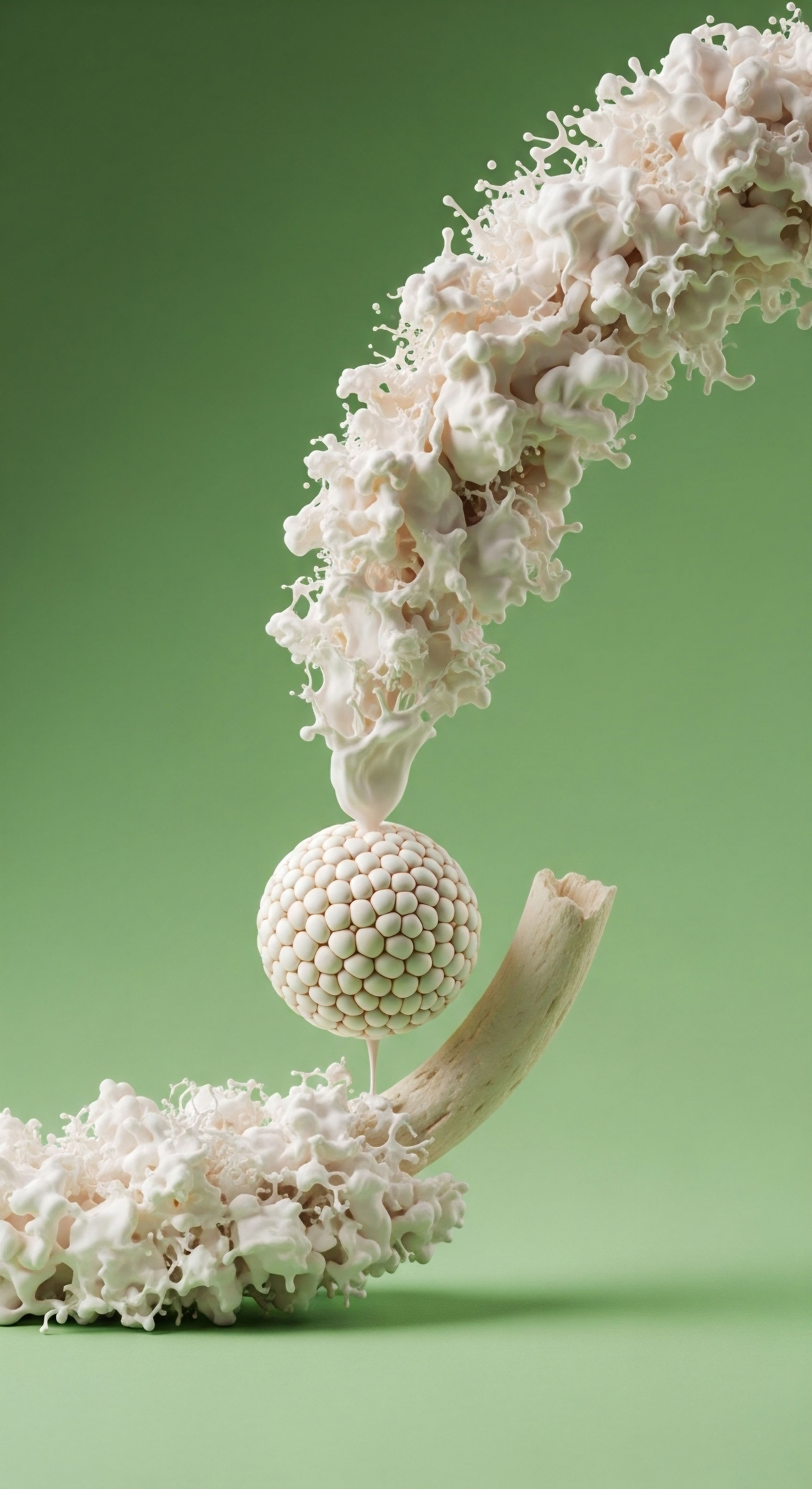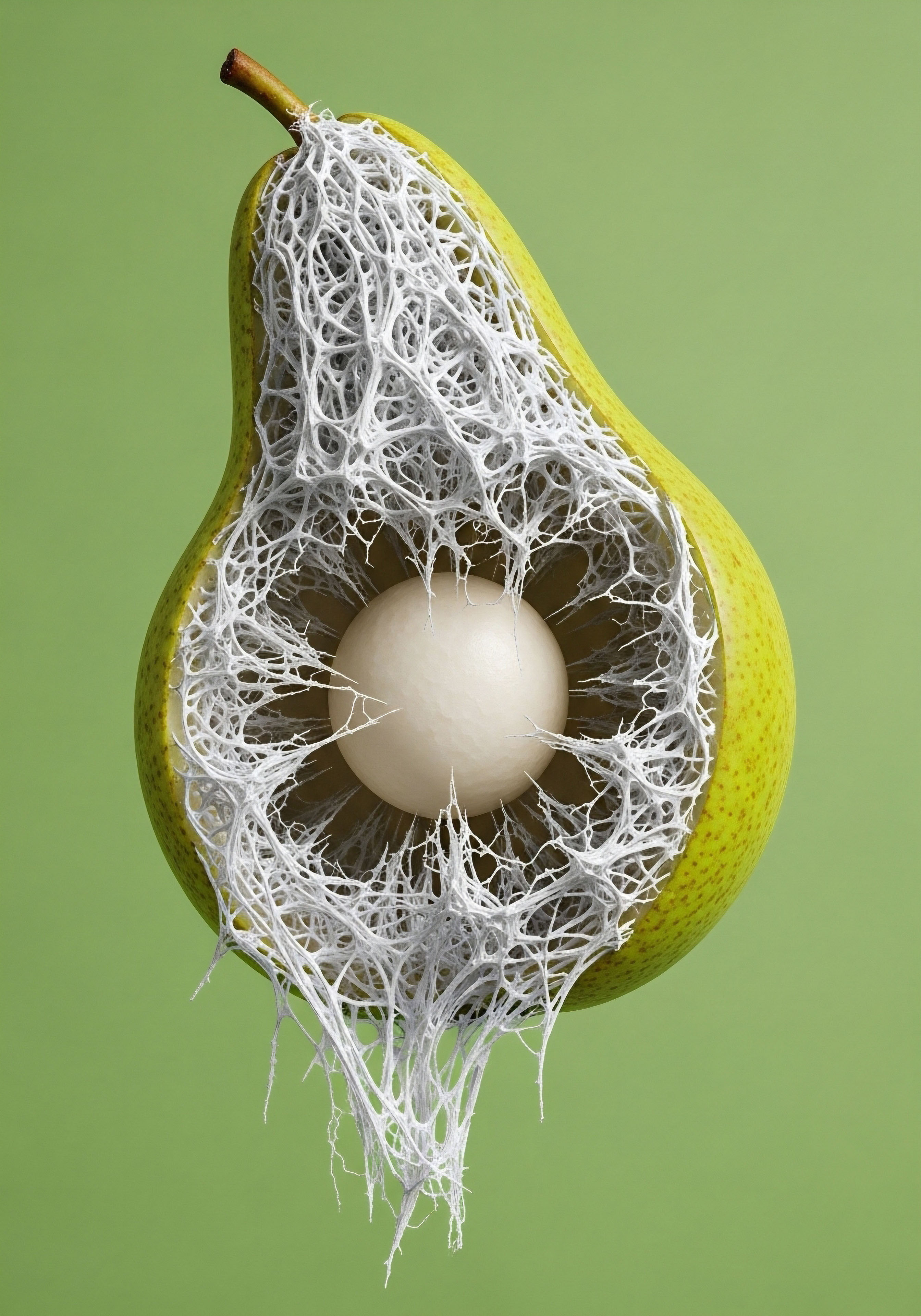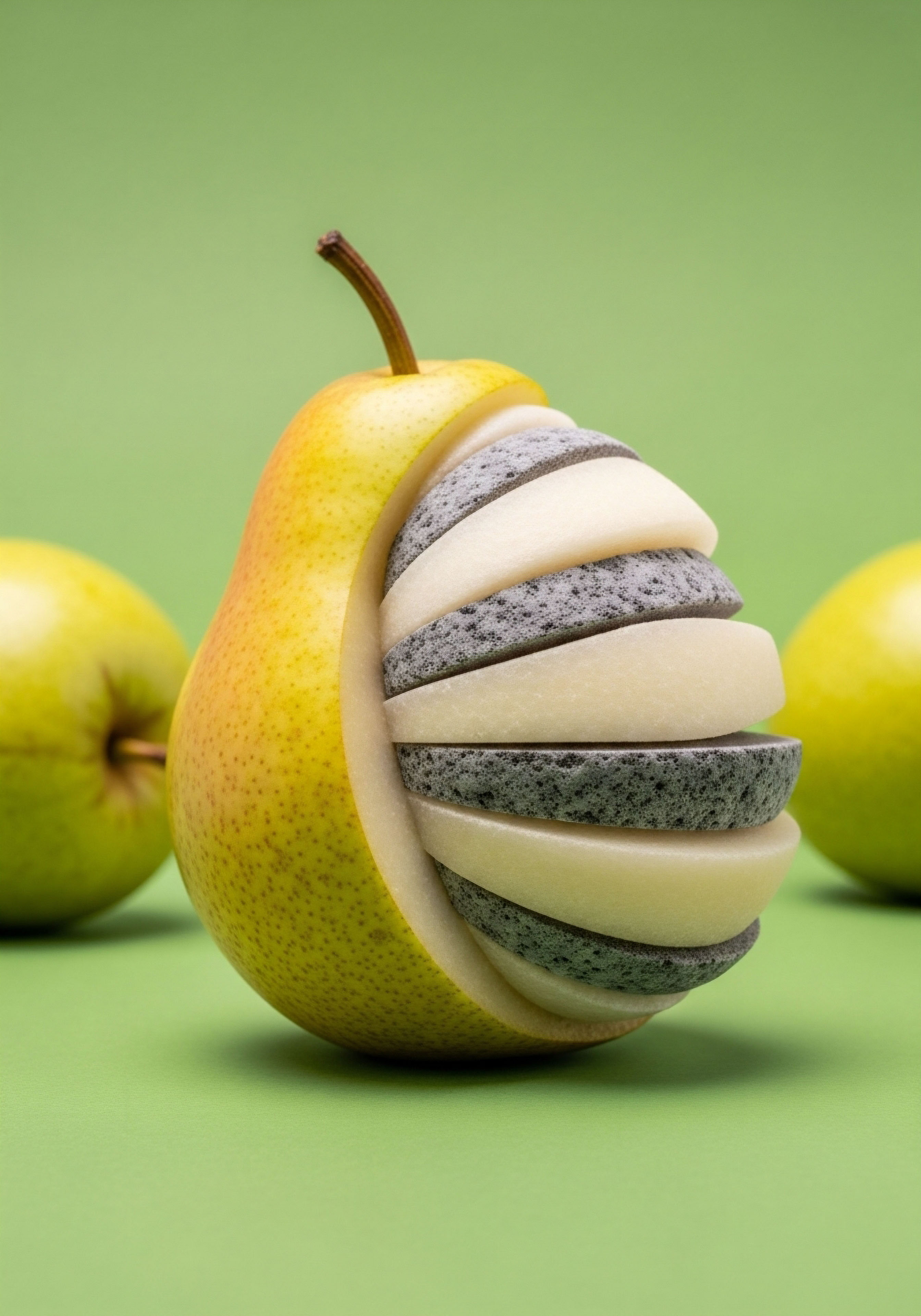

Your Body Is Not Your Enemy
There is a persistent whisper in the wellness space, a ghost story told around the digital campfire that a single food can derail your entire biological system. This narrative casts your body as a fragile machine, easily broken by a plant. We are here to recalibrate that thinking.
The idea that soy consumption craters testosterone is a fiction that has persisted without the backing of rigorous data. You are not one meal away from hormonal collapse. Your system is far more resilient, far more adaptable, and designed for optimization. This is about moving beyond fear-based nutrition and into a state of informed, proactive self-engineering.
Understanding the truth about soy is the first step in reclaiming your authority over your own biological hardware. It is about building a foundation of knowledge that allows you to make decisions from a position of power, using every tool available to architect a life of peak vitality.
A 2020 meta-analysis covering 41 clinical studies confirmed that neither soy protein nor isoflavone intake has any effect on testosterone levels in men.
The conversation around what enhances or diminishes masculine vitality has been dominated by half-truths and outdated dogma. Many men actively avoid a valuable source of high-quality, plant-based protein because of this lingering myth. This avoidance is a performance blocker, a self-imposed limitation based on flawed intelligence.
Your journey toward peak physical and cognitive performance requires that you shed these archaic concerns and operate on the most current, most robust data available. The objective is to build a body that is efficient, powerful, and metabolically flexible. Excluding entire food categories based on unsubstantiated claims is counterproductive to that mission.
True optimization is about precision, and precision demands that we discard the noise and focus on the signal. The signal, in this case, is unequivocally clear. The data does not suggest caution; it demands a full-scale debunking of a myth that has held too much sway for too long.


Deconstructing the Myth Molecule by Molecule
To understand why soy does not lower testosterone, we need to look at the machinery inside your cells. The concern originates from compounds in soy called isoflavones, which are a type of phytoestrogen. Because they have a similar chemical structure to human estrogen, the fear was that they would act like it in the body, disrupting the natural hormonal cascade.
This is a fundamental misreading of how these systems operate. Think of your hormone receptors as highly specific locks, and hormones as the keys. An isoflavone molecule is like a key that can fit into the lock but cannot turn it.
It might occupy the space for a moment, but it fails to initiate the powerful downstream signaling that actual estrogen does. Its effect is so weak as to be biologically insignificant in the context of your endocrine system’s primary functions.

The Science of Non-Interference
Your body’s hormonal network, specifically the Hypothalamic-Pituitary-Gonadal (HPG) axis, is a sophisticated feedback loop, constantly monitoring and adjusting itself. It is not easily fooled. Multiple comprehensive meta-analyses, which pool the results of numerous high-quality studies, have provided a definitive verdict. These analyses represent the gold standard of clinical evidence.
- A landmark 2010 meta-analysis, later updated and expanded in 2020, systematically reviewed the available clinical trials.
- The 2020 update included data from over 1,750 men across 41 separate studies.
- Researchers looked at total testosterone, free testosterone, and other reproductive hormones.
- The conclusion was unambiguous ∞ soy protein and isoflavones do not alter testosterone concentrations in men, regardless of the dose or how long the study lasted.
This is not a tentative finding. This is a robust, data-driven conclusion from the highest level of scientific evidence. The system is secure. The ghost in the machine has been exorcised by data.


Integrating Plant Performance on Your Terms
You will notice the benefits of this knowledge the moment you stop dedicating mental energy to a non-existent threat. The true upgrade happens when you re-integrate a powerful nutritional tool into your performance arsenal. For the man engineering a leaner, more efficient physique, soy protein offers a high-quality, dairy-free option to support muscle synthesis.
For the executive optimizing cognitive function, the focus shifts from food anxiety to fueling the brain for high-stakes decisions. You will see the results not in a hormonal shift, because there is none, but in the freedom and flexibility you gain in your nutritional protocols. This is about upgrading your operational intelligence.
The results of this meta-analysis suggest that neither soy foods nor isoflavone supplements alter measures of bioavailable T concentrations in men.

The Optimization Timeline
The shift from myth to informed action is immediate. The physical integration of soy into your diet can be tailored to your specific performance goals. Below is a framework for how to think about its application.
Consider adding soy-based foods or proteins into your diet at any time, especially when your goals include:
- Diversifying Protein Intake ∞ Your body benefits from a variety of amino acid profiles. Integrating soy alongside animal-based proteins creates a more robust nutritional foundation for muscle repair and growth.
- Improving Metabolic Health ∞ As a clean, plant-based protein source, soy can be a valuable component of a diet designed to optimize body composition and support cardiovascular health.
- Post-Workout Recovery ∞ When you need a fast-digesting protein source after a training session, soy protein isolate is a highly effective option that can be used interchangeably with other protein sources based on your preference and tolerance.
The question is not when you will feel the supposed negative effects, as the data confirms you will not. The real question is when you will choose to leverage every scientifically validated tool at your disposal to achieve your biological potential. The time to discard the myth is now. The time to start building a more effective nutritional strategy is your next meal.

Your Biology Is Your Potential
We have dismantled the architecture of a pervasive myth. The data is not just in; it is conclusive, robust, and liberating. This entire conversation was never truly about a bean. It was about who is in control of your biological destiny.
It is about your ability to parse signal from noise, to reject outdated dogma, and to architect a life of vitality based on the best available intelligence. The body is not a fragile vessel waiting to be broken. It is a high-performance system waiting for the right inputs and the right operator. You are the operator. The question now is, what will you build?

Glossary

plant-based protein

isoflavones

endocrine system

meta-analysis

soy protein

muscle synthesis

nutritional protocols




